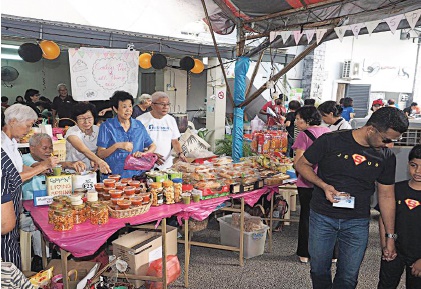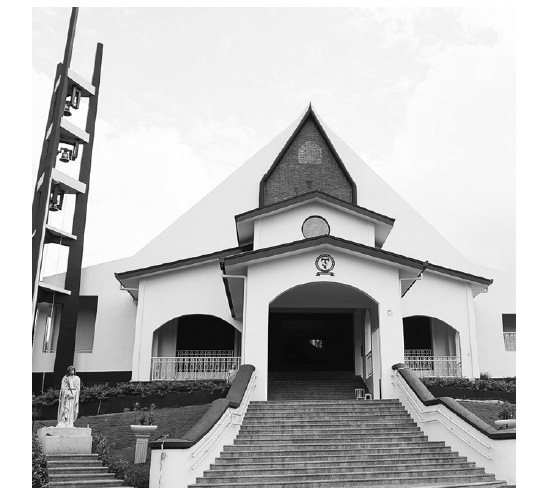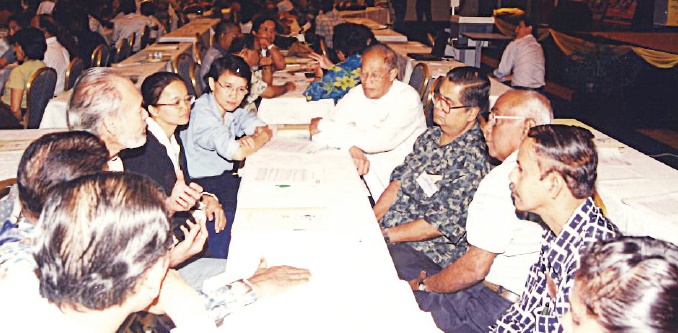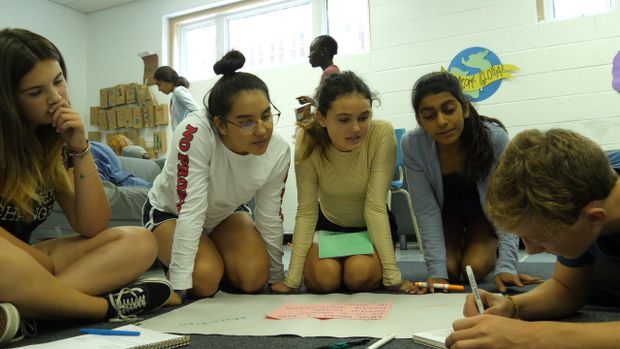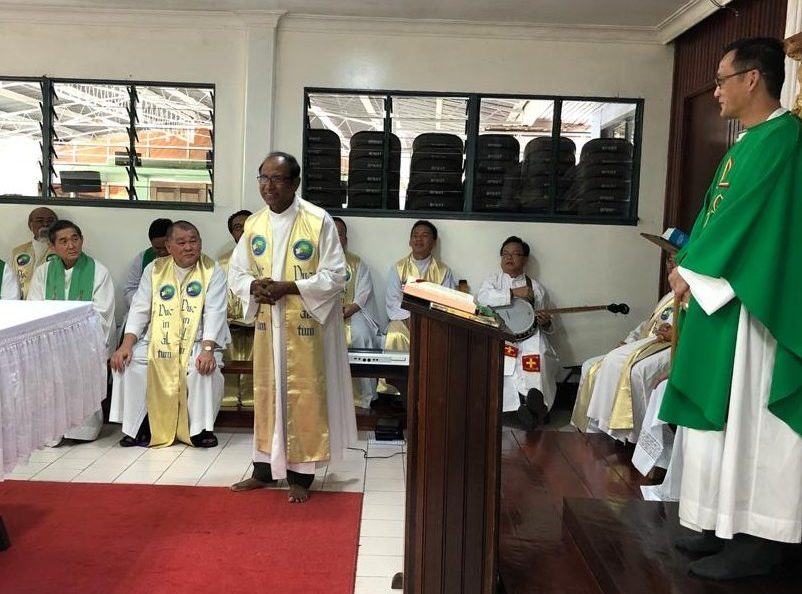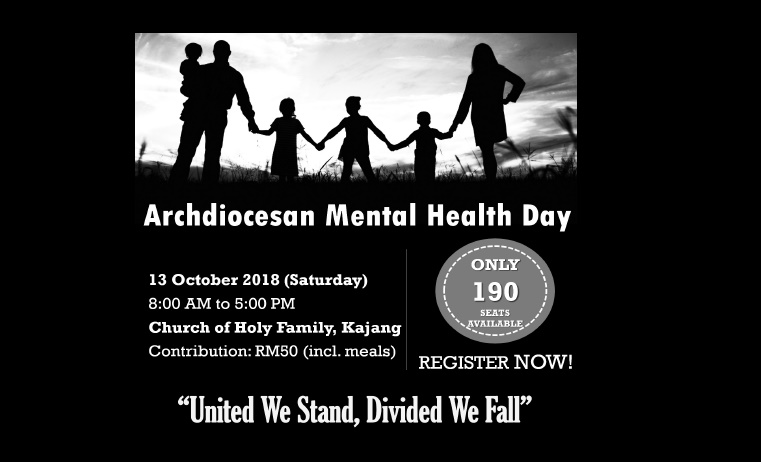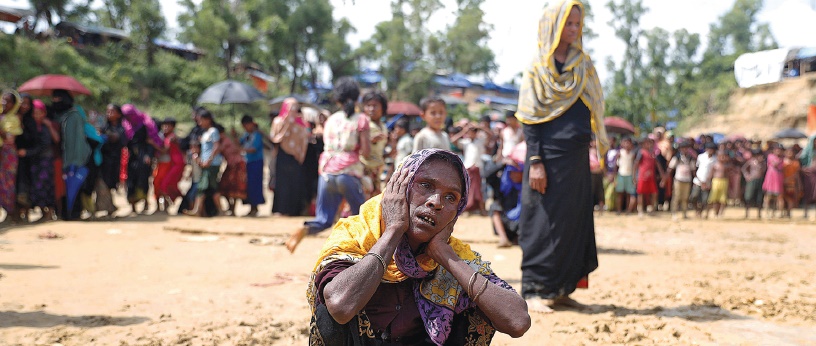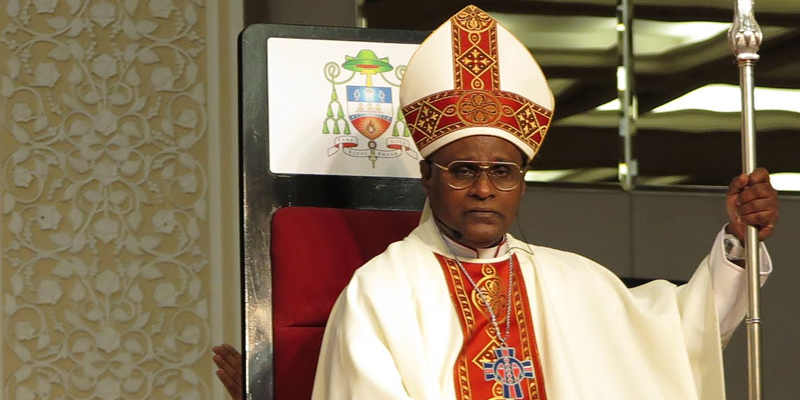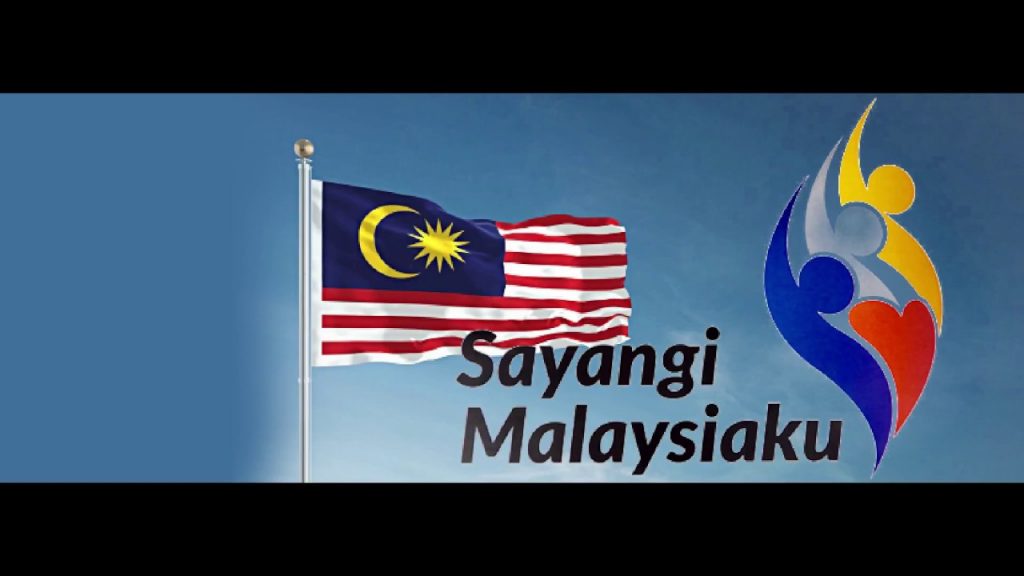Peninsular Malaysia Pastoral Assembly III (Aug 30-31, 2001)
The Peninsular Malaysia Pastoral Assembly III was held on Aug30-31, 2001 (PMPA III) at the Mint Hotel Kuala Lumpur. (Peninsular Malaysia consists of the Penang Diocese, Kuala Lumpur Archdiocese,and Malacca Johore Diocese).
The event focused on:
1) Recalling the Past with gratitude;
2) Living the Present with enthusiasm;
3) Looking forward to the Future in confidence.
Over 450 Bishops, Priests, Religious,lay adults and lay youths participatedin the two-day Assembly.
The Theme of the Assembly was:Restore My Church. Reports of thethree Arch/Dioceses of PeninsularMalaysia were presented.
Various activities targeting the Vision and Mission of the Peinsular Church and the transformation of the Parishes into Communion of Communities as envisaged at the PMPC II (1996) were reported ashaving been carried out in the three Arch/Dioceses.
The Assembly focused particularly on the priority of the Peninsular Church in the building of Small Christian Communities more popularly known locally as the BEC(Basic Ecclesial Communities).
After noting the “successes and failures” of the BEC, the Assembly ended with a “Paradigm shift”on how the NEW BEC will function,following the directions of the Pope, the Asian Bishops and the Bishops of Peninsular Malaysia.
The end result was 10-point directionsof the Assembly:
PMPA III, the 10-Point Directions
1. Structural Organisation of Parish
BECs are seen as central and vitalin the organising of a parish(BECCOT). Towards this end,that serious efforts are made for BEC to be structured or restructured according to 10-15 families per BEC.
To facilitate the necessity for aParish BEC Coordinating Team(BECCOT) made up of all Area BEC Core Team members.The other coordinating structural body in the parish (PCC)should be reduced to two or three times a year due to the importanceof the monthly gathering.
2. Understanding BEC as Relational Communities
To understand BECs as relational communities, we should realign ourselves to small numbers, inter-personal relationships, ‘faith sharing’ and fraternal gatherings’.
Relational communities arewhere people relate for ‘faithsharing’ and ‘faith commitment’to society.
3. Interest for all People
That the members of the AreaBEC Core Team make regularvisits to all the families in thearea, especially families who areabsent or shy away from BECgatherings and also to visit the new families who have been identified at the level of the parish.
4. Attention to Youths in the BEC
That we minimise “MACRO youth activities” at Diocesan,District and Parish levels and concentrate on “MICRO youth gatherings” at BEC level.
5. Consensus for a Common Designated Day
That we work towards a common designated day for all BEC relatedevents — monthly Parish BEC Coordinating team gatherings,monthly Area BEC gatherings,monthly Area BEC Core-teammeetings, regular family interactions at BEC.
Ideally consensus should be arrivedat the Peninsular level butit can also be arrived at the Diocesanor Parish level.
6. Formation by BEC Animating Team (BECAT)
That the Parish BEC Animatingteam, made up of eight to tenmembers, be responsible for thelife of prayer, animation and formationof BEC Coordinators.
7. Preparation by Area BEC Core Team
That the members of the AreaBEC Core team, made up of fourmembers from each BEC (Coordinator,Asst Coordinator, messengerand youth), meet everymonth, prior to the Area BECmonthly gathering to evaluate thepast and plan for the future.
8. Change Stereotype of Priestly Ministry
Besides being a ‘Proclaimed ofthe Word and Minister of theSacraments’ which is an essentialdimension of his priestly ministry,the Parish Pastor should commithimself as the ‘Leader of theCommunity’. Specifically, that hecontributes and participates at allparish BEC Coordinating Team(BECCOT) gatherings and assistsand accompanies the ParishBEC Animating Team (BECAT)
9. Celebration of Eucharistat BEC level
That both the ‘ready offer’ bypriests and ‘the repeated requests’by BEC for frequent Eucharisticcelebrations at BEC level shouldcease. That such celebrationsbe reduced and restricted to justonce a year.
10. Diocesan Commitment to BEC
That there be greater commitmentat Diocesan level to ‘provideformation’, ‘instill motivation’and monitor progress and‘assist evaluation’, especially inpreparation for the Parish AnnualPastoral Assembly
Directives of Most Rev Soter Fernandez, Archbishop of Kuala Lumpur
I hereby announcethat Wednesdayevenings be reservedexclusively for BECgatherings and BEC-related activities. Thisadjustment is made asa reminder to all Catholics,especially thosewho are involved inmany varied parishpastoral services, thatthe BEC is the foundationunit of a parish life and consequently,that BEC gatherings are thepriority pastoral concern.It is envisioned that:
1. One Wednesday of themonth is reserved for all theBEC Core-Team to meet forprayer and planning of the BECmonthly gathering.
2. One Wednesday of themonth is reserved for the BECgathering.
3. One Wednesdayof the month bereserved for homevisitation.
4. One Wednesdayof the monthbe reserved for allBEC Core-Teammembers of allthe BECs of theparish to meet inthe parish for eitherprayer, Holyhour or formation sessionson BEC.
I urge all parishes to make necessaryadjustments for all otherparish meetings and programs tobe held on other days so that thisplan can be implemented by thebeginning of the new liturgicalyear.
Dated this 24th day of October,2001 at Kuala Lumpur.
Malaysian report at AsIPA III: Towards a more participatory Church
The Third AsIPA General Assemblyheld in Seoul, Koreafrom Sept 2-9, 2003.
The Malaysian contingent reportedat the AsIPA III that themonthly BEC gatherings wereconducted in the English, Tamil,Chinese and Malay Languages.
The Archdiocese of KualaLumpur also reported that it wasworking towards a participatoryChurch and in order to enable herto do this, she has conducted programmesfor the following:
1. Community Building
a) AsIPA Modules (B series)
b) Archdiocese formulated Modules.
2. Participatory Church
a) AsIPA Modules (C series)
b) Communitarian SpiritualityExperience.
3. Biblical and Theological
a) Formation of Laity
b) Bible Courses of differentduration.
The Archdiocese also conducteda survey for the Kuala LumpurArchdiocesan Pastoral Assembly.
The survey showed the followingresults:
Our Strengths
— Many parishes have successfullyimplemented BECs. ManyBECs use the Monthly Reflection-papers published by the PeninsularMalaysia Pastoral Team(PMPT).
— Many parishes have BEC Area Core Teams.
–The Archbishop’s Directives have given a specific thrust to the Archdiocese.
— There were concerted efforts by priests to implement the directions of the Pastoral Assembly.
Our Weaknesses
— Only a small percentage of our Catholics actively participate inBEC. Not enough effort is madeto ‘Reach out’.
— Many parishes have yet to form Parish BEC Animating Teams(BECAT) and BEC CoordinatingTeams (BECCOT).
— Limited or false understandingof the role of PARISH, BECCOTand BECAT among some priestsand lay leaders.
— Secular life and social changesaffect families and individuals.l Most parishes do not have aPastoral Plan (short, mid or longterm).
The five Malaysian participants were from the Archdiocese of Kuala Lumpur. They were:
— Archbishop of KualaLumpur, Most Rev MurphyPakiam
— Lourdu Mary a/p JosephThamby Raj
— Sam Bosco
— Maria Yan
— Robert Tan
Article reproduced from Herald Malaysia online


